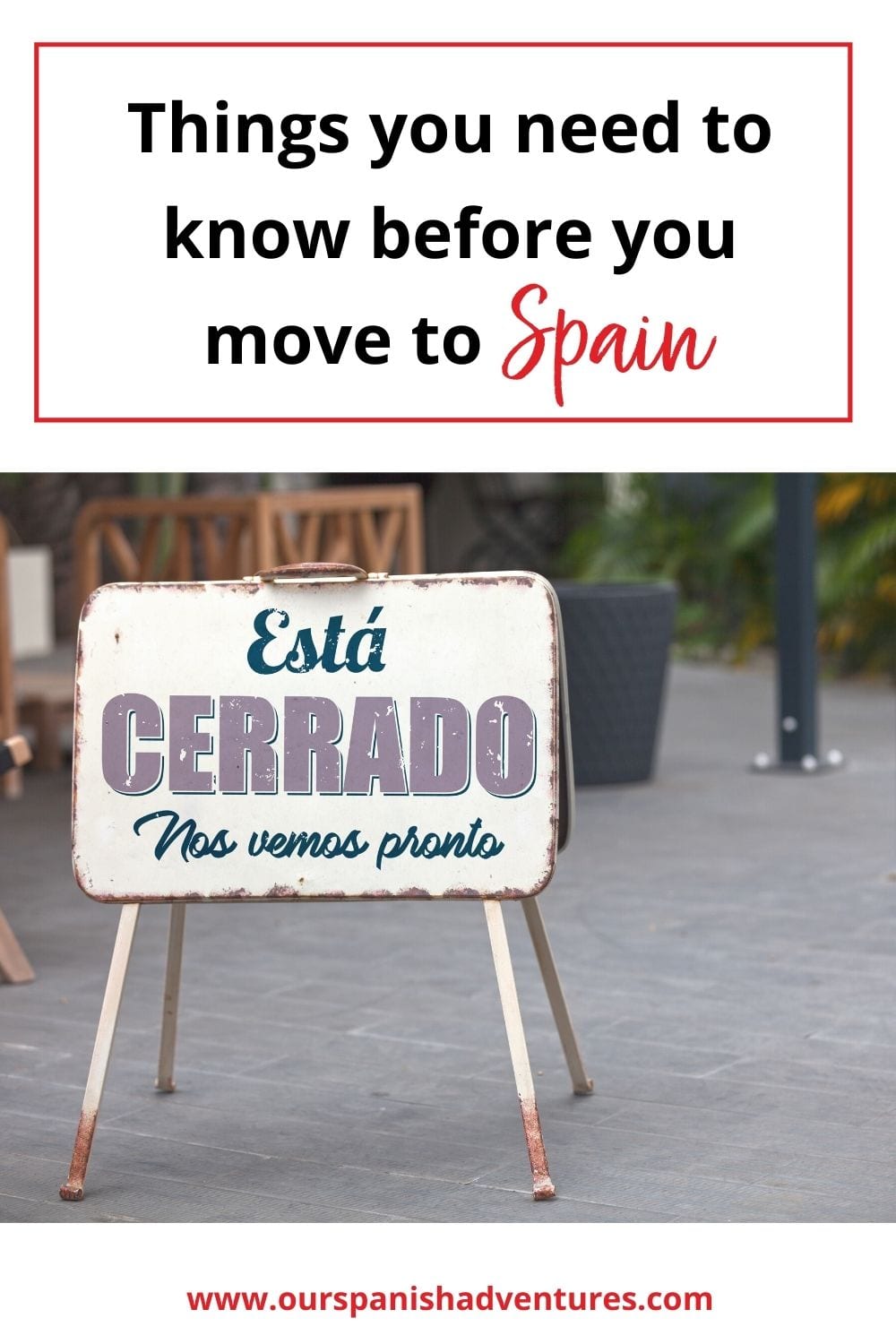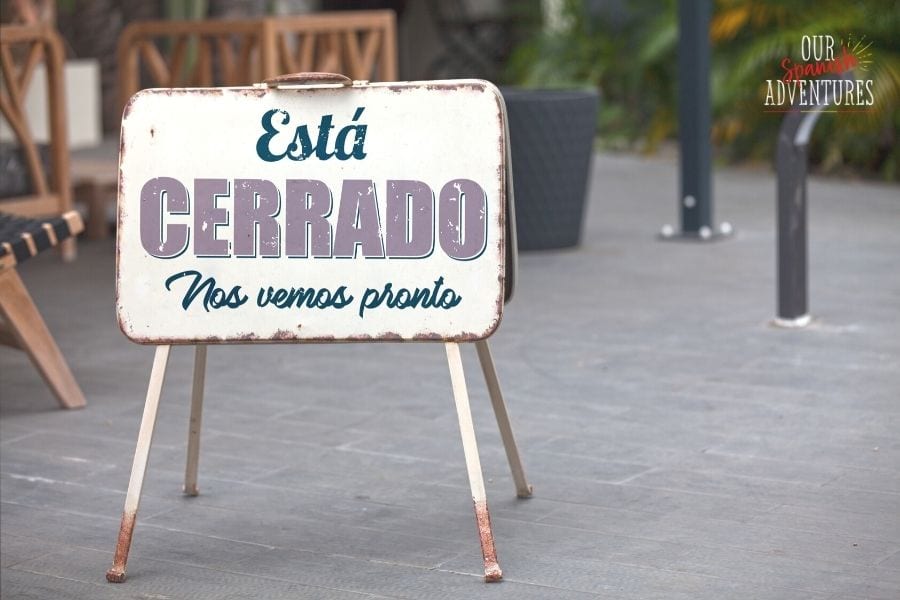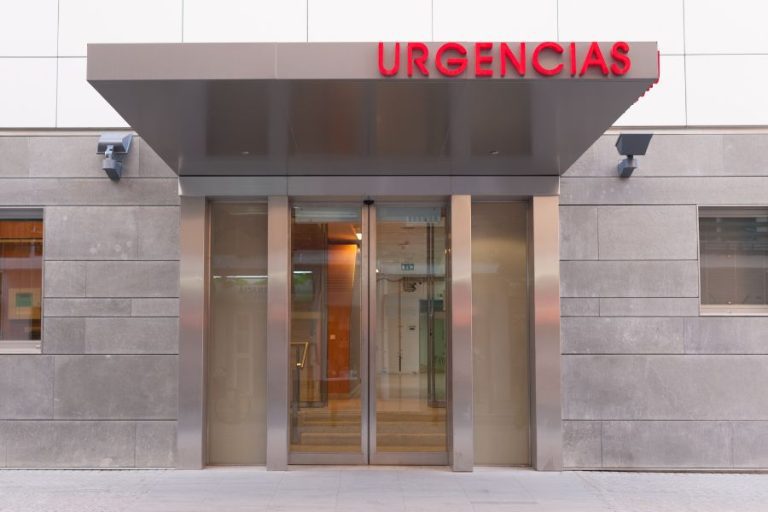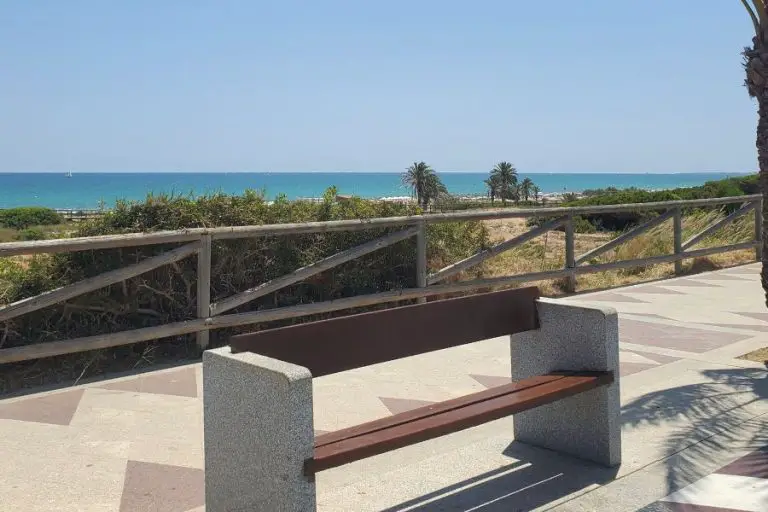9 essential things to know before you move to Spain
No matter how much research you do before you move to Spain, there will always be some unexpected things that surprise you.
We haven’t come across anything major that we wish we’d known in advance, but there are a few things that would have been helpful to know.
If you’re planning a move to Spain, take a look at our list of things to know before you move to Spain…
Prepare for lots of bureaucracy
We weren’t quite prepared for as much red tape as we faced when trying to get all our official paperwork in order when we first arrived. The Spanish love their paperwork and sometimes it feels as though they’re trying to make it as difficult as possible to get anything done.
Rules seem to differ from area to area, as does the level of knowledge of the officials that you’ll come into contact with. But there’s no arguing with Spanish officials, it’s their way or not at all so be prepared for more visits than planned to get any official documentation such as NIEs, TIEs, Padron, etc.
Make photo copies of everything
Following on from the above point, one of the top things to know before you move to Spain is to make sure that you take several photocopies of everything whenever you attend an official appointment, Even if you think there’s no way you’ll need your marriage or birth certificate, take 3 copies of it with you! The Spanish will always ask for a copy of that one piece of paperwork you don’t have. When we got our Residencia the policeman decided he wanted a photocopy of 3 months’ worth of bank statements from our UK bank account – something the translator helping us said they never asked for!
Nothing gets done in August
If you’re moving to Spain during the summer make sure you factor into your plans the fact that everything closes in August. Banks, estate agents, town halls, everywhere will close for the whole month so don’t expect to be able to get your NIE or Padron, or open a bank account during the summer.
Understand the Spanish timetable
Generally things happen later in Spain. Offices and banks won’t usually open before 10am, lunch is after 2pm, and dinner is no earlier than 9pm.
A lot of places still have the traditional Spanish siesta as well, so you’ll find many places closed from 2-4pm. However, shops will often be open until 11pm and restaurants until the early hours of the morning.
Don’t go to the bank in the morning
This is something that we learnt early on – never go to the bank before 11am. If you do, expect to be stood outside waiting for a couple of hours. Even if you make an appointment in advance you can still expect to wait for a long time.
You don’t need to tip
Of course, you can tip in restaurants and bars but it’s not expected and certainly not at the 10-20% you’d be used to elsewhere. Leaving a few coins in change on the table is plenty, though maybe in very touristy areas staff will be used to bigger tips.
It gets really cold inside during the winter
We were told how cold Spanish houses get in the winter months but still weren’t prepared for it. Spanish houses are built to keep out the heat and most have no central heating, so in December and January it can get so cold indoors you can see your breathe. Buy blankets, hot water bottles, and electric blankets to keep warm. You can also invest in plugin heaters and radiators but if you do you can expect your electricity bills to more than double for a couple of months. Luckily winter in Spain doesn’t last long.
Don’t be so polite
In Spain you don’t have to see ‘please’ and ‘thank you’ all the time, and you’ll notice that the Spanish hardly ever do. At first as a polite Brit you’ll find it quite rude, but you’ll soon realise that it’s just normal and implied in the tone of voice rather than with ‘por favor‘ or ‘gracias‘.
Beware of regional languages
Last but not least on our list of things to know before you move to Spain are regional languages. Before you choose an area to settle in, make sure you find out if there is a regional dialect. Here in the Valencian Community (which includes Alicante) Valenciano is widely spoken, and is still taught in schools. In some less touristy areas you may find yourself trying to translate news and signs in a local dialect which can be quite tricky.
Hopefully knowing some of these points will help you when you move to Spain! If you’ve already made the move, are there any other things you wish you’d known in advance?
Pin for later:









